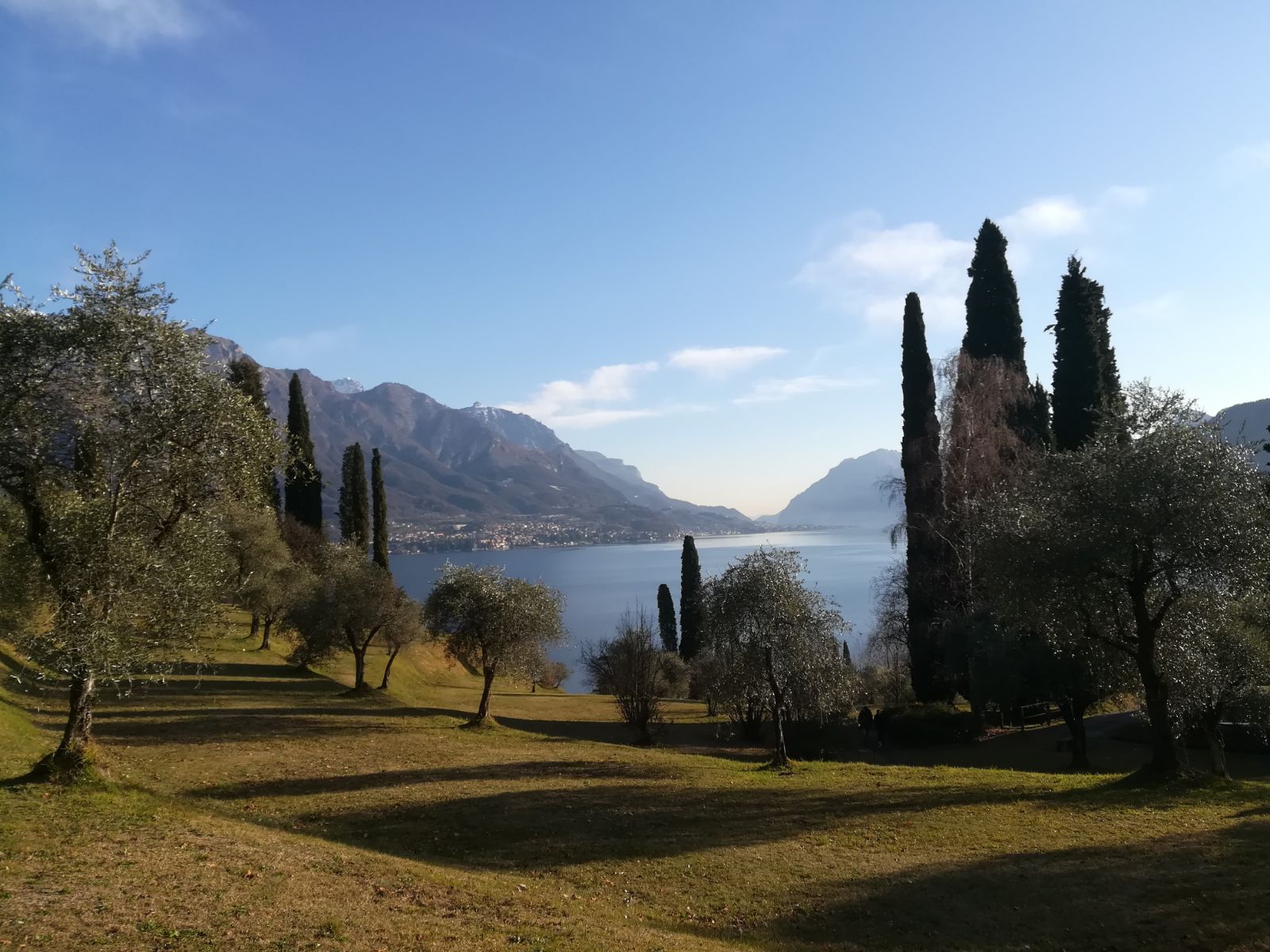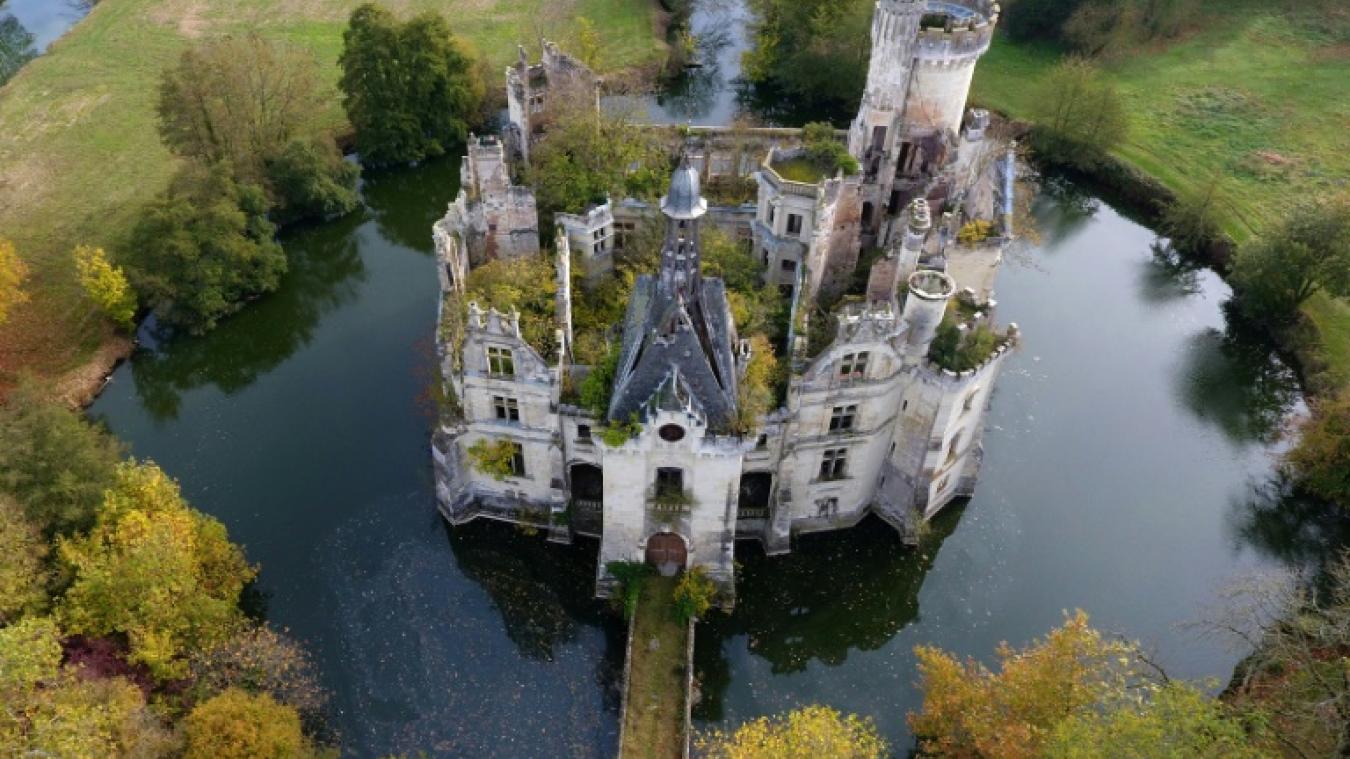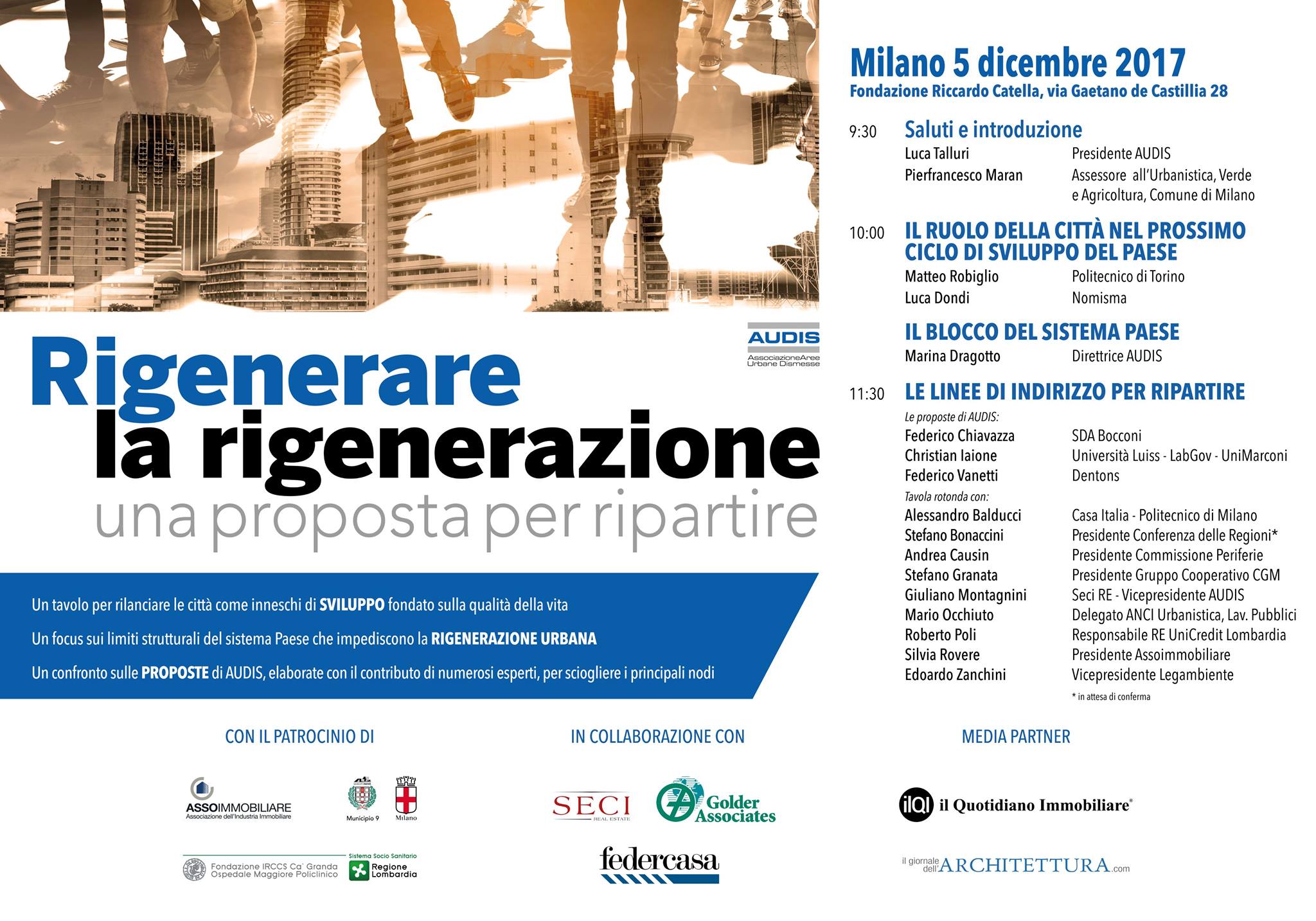
by Elena De Nictolis | Dec 29, 2017 | The Urban Media Lab
The Rockefeller Foundation Bellagio Conference Program hosted a retreat: “Accelerating Citywide Civic Entrepreneurship: An Exercise in the Co-City Approach” from December 11-15, 2017. The retreat is hosted by the LABoratory for the GOVernance of the Commons (“LabGov“), with the aim of providing a first methodological trans-geographical test of the Co-City algorithm, a new mode of civic entrepreneurship that empowers the public, private, and social sectors to govern urban commons collaboratively for the public good and better meet the needs of city residents through an experimentalist approach.

The retreat brought together leaders in urban innovation and civic entrepreneurship, with representatives from the City of Amsterdam (the Netherlands; urban innovation officer); the city of Barcelona (Regidoria de Participaciò i territorio) the City of Boulder (Colorado,Chief Resilience Officer (CRO); the city of Turin (Italy, the Co-City project funded by the EU Urban Innovative Action program as part of the Regional Development Fund); the city of Madison (Wisconsin, which dedicated capital funds to support a worker cooperative development initiative aimed at supporting people of color and others with barriers to formal employment to create worker cooperative businesses); the City of New York (NY, NYCx Co-labs program of the Mayor’s office of New York City, participating via Skype); Habitat International Coalition; the National Association of Italian Cities (ANCI) as National Contact Point of the EU Urbact program; Cooperation Jackson (network of cooperatives and worker-owned enterprises; Archiafrika (NGO based in Accra, Ghana, that promotes both the built and cultural spaces on the African continent and aims at contributing to the understanding and development of design within the continent and encourage the investigation and education of African architectural history); the German Marshall Fund of the United States (the Urban and Regional Policy Unit); the Brookings Institution ( the Project on 21st Century City Governance); the Laboratory for the City, Laboratorio para la Ciudad (experimental arm and creative think tank of the Mexico City government); SPUR (an NGO operating in the San Francisco Bay area). The retreat was facilitated and co-chaired by Alicia Bonner Ness, Sheila Foster, Christian Iaione and Simone D’Antonio.

During the five days in Bellagio, the participants were introduced to the last research output of LabGov, the Co-City process/cycle and the five design principles developed by Sheila Foster and Christian Iaione for the design and implementation of a co-city. The participants were involved in a simulation of the Co-City process and engaged in an exchange of experiences and mutual learning exercises. As recalled by Simone D’Antonio 1 in a recent article on the Rockefeller LabGov Bellagio retreat, the fruittul exchange of experiences showed the variety and richness of approached embraced by cities in different parts of the world to develop an innovative way of implementing urban governance; from the case of Turin, which through the Co-City project funded by the EU program UIA is experimenting with urban commons as a platform to tackle the issue of urban poverty, to the case of Mexico City where representatives of different urban stakeholders such as representatives of creative economy and urban planners are coming together to contribute to the re-design or the city or the city of Wisconsin, which which dedicated capital funds to support a worker cooperative development initiative aimed at supporting people of color and others with barriers to formal employment to create worker cooperative businesses, or the experience of international public institutions such as UN Habitat with the Safer cities program, launched in 1996 at the request of African Mayors seeking to tackle urban crime and violence in their cities and has evolved towards time is an integrated, multi-level government and multi-sectoral approach to improving the livability of cities and quality of urban life.
The aim of the Rockefeller Bellagio Retreat organized by LabGov was to gather representatives of different actors of what was called the Quintuple Helix governance of urban innovation at the global level in order to explore potential applications of the Co-city/city as a commons 2 model to co-create and sustain more just and inclusive cities. Among the potential outputs of a global experimental application of the Co-City process is the development a set of tools to design urban justice and democracy and thereby also measure the implementation of some of the New Urban Agenda goals, such as those i 13 and 91, or the Sustainable development goals (SDGs) 16 and 17, in particular the subgoal 16.7, 17.17 and 17.19.
(1) Simone D’Antonio, Co-City. Esperienze globali di cura dei beni comuni a confronto a Bellagio, Il Sole 24 ore Enti locali e PA, December 19, 2017.
(2) Sheila Foster & Christian Iaione, Ostrom in the city: design principles for the urban commons, The Nature of Cities, August 20 2017.
…………………………………………………….
L’algoritmo #CoCity è stato sottoposto a un primo test metodologico trans-nazionale nell’ambito del Rockefeller Foundation Bellagio Retreat organizzato da LabGov dall’11 al 15 Dicembre 2017 “Accelerating Citywide Civic Entrepreneurship: An Exercise in the Co-City Approach”. Nel corso del retreat rappresentanti di città americane, africane, europee e latino americane, movimenti sociali, grandi società tech e ONG pubbliche internazionali si sono confrontate e sono state coinvolte in una simulazione del protocollo Co-City per discutere insieme di soluzioni collaborative per affrontare le nuove sfide delle città nel mondo.

by Alessia Palladino | Dec 29, 2017 | The Urban Media Lab

The 12th International Human Rights Researchers’ Workshop, The Sharing Economy: Markets and Human Rights, will take place on January 8 and 9, 2018 at the College of Law and Business, 26 Ben Gurion street, Ramat Gan, Tel Aviv.
The Conference will deepen many issues of the Sharing economy, dealing with both competition and social concerns. It will be articulated into many Panels, dealing with:
- Problems and concerns of the sharing economy;
- Public Interests and Human Rights;
- Crowdfunding;
- Discrimination in the sharing economy;
- Sharing economy and Urban Environment;
- Obligations and Competitions;
Professor Christian Iaione will be a keynote speaker on January 9, from 11.30 a.m. to 1.00 p.m. His speech will be about Pooling and Tech justice, proposing a Human right – based approach to the Sharing economy.
The complete programme is available here: http://www.clb.ac.il/uploads/8-9_1_2018.pdf
A Tel Aviv si terrà la 12th International Human Rights Researchers’ Workshop in data 8 – 9 Gennaio 2018, intitolata The Sharing Economy: Markets and Human Rights. Il Professor Christian Iaione parteciperà il 9 Gennaio con una dissertazione su Pooling and Tech justice.

by Maria Elena Santagati | Dec 27, 2017 | The Urban Media Lab

Chateau de la Mothe-Chandeniers, France. Image from La Voix du Nord
More than 17.000 contributors from 115 countries participated to the crowdfunding campaign promoted by Dartagnans, a French crowdfunding agency dedicated to the promotion of cultural heritage, to buy, save and enhance the Chateau de la Mothe-Chandeniers in France. More than 1,5 million € have been collected thanks to the contributors that will become co-owners of the medieval castle; 500.000 € will go for the purchase, while the remaining part for the securing and restoration activity.
Meanwhile in Italy Federculture, the National Federation of Regions, Municipalities, Local Utility Companies and all actors managing cultural, tourism, leisure and sports services, launched a petition to ask the Italian government the ratification of the Faro Convention.
Besides the ever growing bottom-up initiatives and activities promoting citizens involvement and engagement in culture, participation is finally gaining an increasing attention also in the research field, as demonstrated by the recent conference “Participatory governance in culture. Exploring practices, theories and policies”, held in November in Rijeka and promoted by Kultura Nova Foundation in collaboration with the European Cultural Foundation. 3 days of interesting discussions and paper presentations around the topic of participatory approaches in culture. Professors Leila Jankovich (University of Leeds, UK), Frank Fischer (Humboldt University, Berlin, Germany and Rutgers University, US) and Christian Iaione (Guglielmo Marconi University of Rome, LUISS University and LabGov’s co-founder, Italy) proposed three different keynote speeches exploring participatory approaches in the arts, in cultural governance and policy making and in the city as a commons perspective. The conference was also an opportunity to learn about many practices spreading throughout Europe, from cultural associations to independent spaces and platforms, from social centres to museums, all developing participatory projects and processes in their everyday activity. Insights into other continents approaches, with some representatives of Zambia, South Africa, US and India were provided as well. Also difficulties and potentials of participation in European Capitals of Culture were discussed, thanks to the experience of some candidate cities.
Next year, other conferences will explore the role of participation in culture, finally acknowledging its importance.
In April (18-20), Aarhus University will host the international conference “Cultures of Participation – Arts, Digital Media and Politics” in order to discuss about the main trends, potentials and problems of the different cultures of participation. The key question is: “On policy levels, citizen participation and engagement are emphasized as key components of democratic societies and these policies are currently being practiced and put to work at cultural institutions and cultural houses, in artistic production, in architectural and urban ‘smart city’ designs and various digital media spaces. But what are the characteristics of cultural participation and how do these manifest themselves in cultures of participation?” The conference invites paper proposals in these topics (deadline January 5): 1) Participatory art & aesthetics, 2) Digital media & technology, 3) Cultural policy & participation.

Image from https://www.gla.ac.uk/events/universeum2018 (the main building of the University of Glasgow)
In June (13-15th), the main annual conference of Universeum- The European Academic Heritage Network (XIX Universeum Network Meeting), held at The Hunterian, University of Glasgow, will be focused on “Working Together: Partnerships,Co-creation, Co-curation”. A call for papers (deadline January 31) is launched in the following topics: 1) Teaching and Student Engagement with Collections; 2) Co-curating Academic Collections Within and Beyond the Campus, while a poster session will deal with the topic of “Working Together in University Museums”. The purpose is clear, due to “the importance for university museums of working together, not only within the university campus but also beyond, collaborating with other cultural heritage organisations; with other communities; with society at large. (…) Working together includes also giving the initiative and the voice to our end users, and working closely together to co-curate and co-create exhibitions, resources, and events”.
European Cultural Heritage Summit, Berlin
Always in June (18-24th), Berlin will host the European Cultural Heritage Summit, one of the flag events of the European Year of Cultural Heritage. The Summit theme is “Sharing heritage – sharing values” and it will be co-hosted by Europa Nostra, the Prussian Cultural Heritage Foundation (SPK) and the German Cultural Heritage Committee (DNK). A large number of events will be proposed mobilising public and private stakeholders, among which the Heritage excellence fair, an High-level policy debate on Europe and cultural heritage, the Award-giving ceremony for the EU Prize for Cultural Heritage/Europa Nostra Awards 2018 and the Europa Nostra General Assembly and visits of the UNESCO World Heritage Sites in Potsdam.
An increasing attention for a relentless phenomenon. Stay tuned!
Il tema della partecipazione nel settore culturale sta finalmente ricevendo la dovuta attenzione. Accanto alla crescita di iniziative dal basso, anche il mondo della ricerca e della policy inizia ad interrogarsi su tendenze, problematiche e scenari del fenomeno. Un 2018 ricco di appuntamenti.

by Giulia Ganugi | Dec 11, 2017 | The Urban Media Lab
In my previous post I presented the phenomenon of Social Street and different ways of these neighbourhood communities to interact with their urban local government. After its publication I had the chance to discuss about it with Luigi Nardacchione, administrator and member of the group Residenti in Via Fondazza – Bologna, and founder – together with Federico Bastiani – of the website Social Street Italia. Our conversation was useful for resuming what has been said about Social Street so far and to clarify once more what we are exactly talking about.

Luigi Nardacchione and Federico Bastiani, administrators of the group “Residenti in Via Fondazza – Bologna” and founders of the website Social Street Italia. Credits: Facebook group Residenti in Via Fondazza – Bologna.
At the question what Social Street is, this is the usual and immediate Luigi’s answer: Social Street is sociality. «The aim is to facilitate the relationships and the acquaintance of neighbours, to re-create the sense of sociality[1]». Sociality, therefore, is the most important goal to reach. All the initiatives, that every Social Street organizes – such as parties, walking tours, cooking laboratories, cleaning of the green public spaces, organisation of second hand markets, etc – have the single purpose to stimulate citizens in socialising. They represent a way, an “excuse”, to gather neighbours around common projects and interests. The will of maintaining members’ relations as first and main goal refers to the concept of «pure sociability[2]», considered the most authentic and transparent model of interaction. In this perspective, sociality becomes a value and a good in itself.
A higher attention towards the urban territory arises in Social Streets’ members as a consequence of the increase in sociability and in activities done together in the area of residence. Indeed, the fact that meetings and events are organized in the neighbourhood makes residents more aware of public spaces: «we feel the territory as our own house, we claim it and we take care of it». This dimension has been already underlined by some members of the group Residenti in Via Fondazza whom I interviewed three years ago. After the Social Street creation and after meeting the neighbours living in the street, they recognize the sidewalks, the arcades and the street in general as an extension of their home. This brings members of Social Streets to notice negative behaviours or lack of attention towards the urban territory and to act consequently: «In one year and a half, every Sunday we met to clean all the entrance doors, all the gates and all the walls facing the street. We do it just because we are glad to do it and because we like to meet on Sundays». The presence of residents committed to this activity give the chance to other neighbours, who initially did not participate in Social Street or who were sceptical about it, to appreciate its values and to socialize more. Besides triggering the sociality in the area, this behaviour produces a second mechanism, similar to the one described by the theory of broken windows[3]: many inhabitants of the street start to clean their own facades autonomously. «Instead than saying “it will be dirty again, why are you doing it?”, there is this virtuous mechanism, without getting angry. You do what you can without complaining».
What is fundamental, however, is that citizens’ care does not depend on the collaboration with the urban local government and it has not to be triggered in any case by the public administration’s request. «I claim the city because I live here, not because the municipality asks me to do so […] We can do everything without political and economic compromises. We want to show that this experiment [Social Street] is possible staying outside of the existing structures, because sociality is out of the system». Luigi mentions many examples of Social Streets that decided to establish a formal collaboration with the local government, both in Bologna and Milan, some of them also signing a collaboration pact[4]. In Bologna the most part of parks and green areas are managed and cured by citizens – individuals or associated in formal organizations. This citizens’ attitude is not wrong generally and Luigi is not against either citizens/committees engaged in this kind of activities or the public administration that opens up this possibility. He does not agree with it just when Social Streets give more values and importance to this aspect than to the generation of sociality. Moreover, since the subjects formally involved in the maintenance and cleaning of public spaces are already numerous, Social Street does not need to base its activity from the same starting point. The possibility to take care of the urban territory is positive – reporting Luigi’s words – and it is possible that neighbours who met thanks to Social Street, decide afterwards to engage in the management of a common good collectively. Nonetheless, it has to remain characteristic of an individual agency, not of a collective and informal subject such as the Social Street that aims, firstly, to include everyone in socialisation practices. Inclusion, indeed, is a variable that strongly matters when one Social Street has to decide whether collaborating with the Municipality. Signing a collaboration pact implies getting closer to the political party that is leading the city at that moment. Some members of the group might disagree with political decisions of this party and, thus, disagree with their Social Street’s decision as well: the result would be that these specific members get distant from the group, not feeling included and engaged anymore. In Milan, really few Social Street – 28 out of 76 – decided to enrol in the official register for informal associations[5] founded by the current municipality’s administration. According to Luigi, this happened because engaging in the research of solutions for collective problems or in the regeneration of urban spaces is not the first aim of Social Street. These aspects become important within Social Street framework only as vehicle of sociality.
Together with sociality, another solid idea emerging from Luigi’s words is that social initiatives do not need to be framed in the existing mainstream structure and political system to be innovative. They can bring innovation by being free, unformal and based on little, but always kept central, values: «Small revolutions are made on even smaller things, but these things have to be really clear».
L’articolo riassume il significato di Social Street, basato sul valore fondante della socialità. La cura verso gli spazi pubblici si sviluppa in un secondo momento e secondo Luigi Nardacchione, amministratore della prima Social Street e fondatore del sito Social Street Italia, questo non implica una collaborazione con la pubblica amministrazione. Anzi, l’intento originale è quello di non entrare nel sistema politico ed economico già esistente, ma dimostrare che le innovazioni possono svilupparsi anche da piccole iniziative, libere e indipendenti.
[1] All quotations refer to the conversation that I had with Luigi Nardacchione on 16/11/2017.
[2] Simmel G., 1997, La socievolezza, Roma: Armando.
[3] Kelling G. L., Wilson J. Q., 1982, Broken Windows: The police and neighbourhood safety, Atlantic Monthly, pp. 29-38.
[4] Regulation on civic collaboration for the urban commons.
[5] Avviso pubblico Social Street, politiche sociali, Comune di Milano

by Chiara De Angelis | Dec 4, 2017 | The Urban Media Lab

On Tuesday, December 5th, Milan will host the national AUDIS convention “Rigenerare la rigenerazione” (regenerating regeneration): a moment of confrontation on the new ASTRID’s proposals to overcome the obstacles that are restraining a widespread urban regeneration process all over Italy.
From 9.30 AM to 1.30 PM, in Fondazione Caseilla, AUDIS and its hosts will try to answer three fundamental question:
- What exactly is the role of urban regeneration for the development of the country? What are its economic and social consequences and are they strong enough to justify an effort from the cultural, administrative and economic point of view?
- What are the strongest brakes that are slowing down and sometimes preventing its implementation? What are the main roadblocks involving both Public Administration and private sector?
- Is it possible now to draw some guidelines in order to loosen the main knots?
LabGov’s co-founder prof Christian Iaione is going to attend the event during the session dedicated to AUDIS’ proposals.
The full program of the event is available here: http://www.audis.it/index.html?pg=10&sub=14&id=538&y=2017
Martedì 5 gennaio si terrà il convegno nazionale AUDIS, dedicato alla rigenerazione urbana e alle proposte per ripartire e riavviare il processo iniziando dal superamento dei maggiori ostacoli incontrati in Italia nella pubblica amministrazione e nel settore privato













